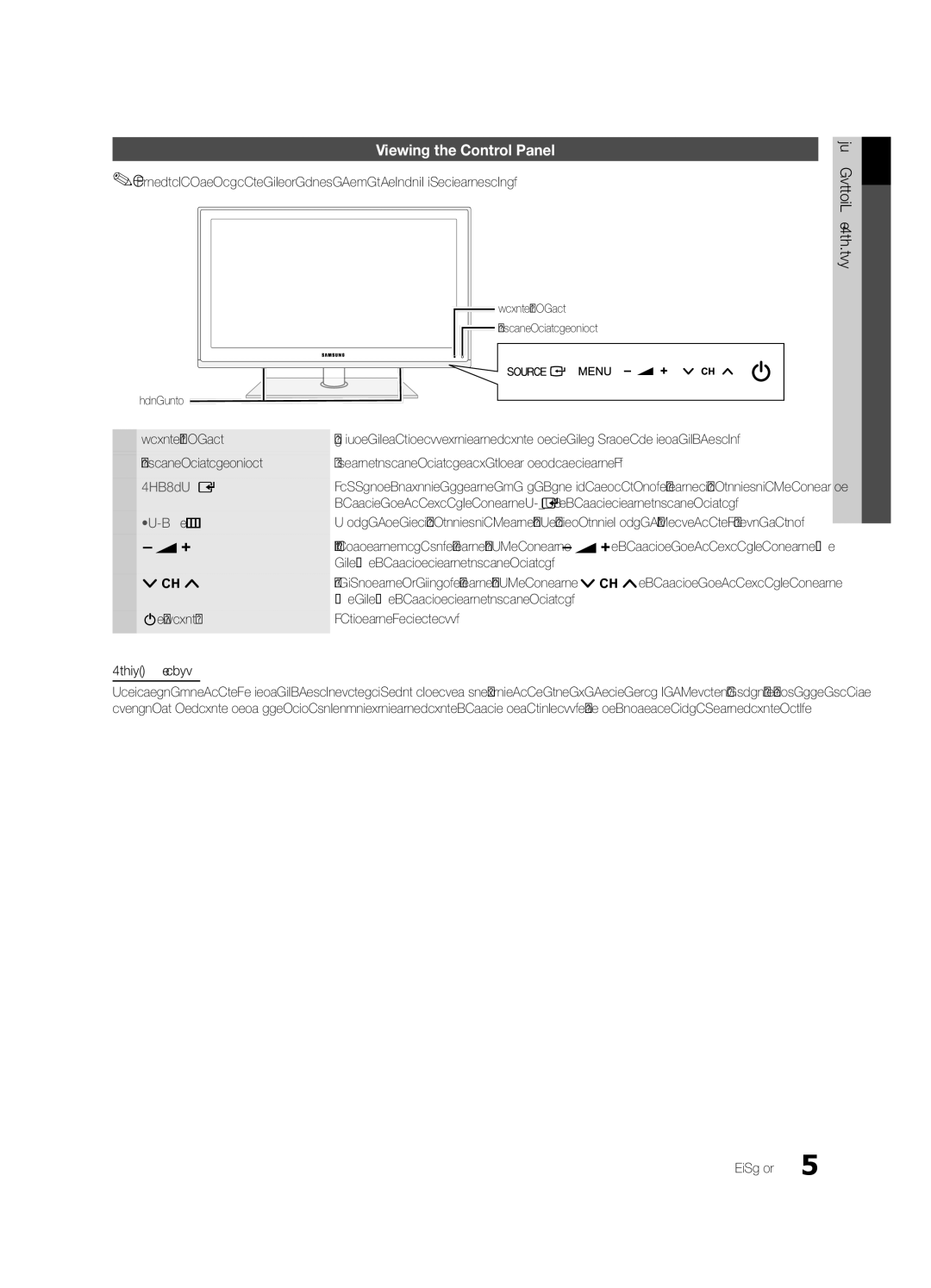
Viewing the Control Panel
✎✎The product colour and shape may vary depending on the model.
|
|
|
|
|
| Power Indicator | ||
|
|
|
|
|
|
|
|
|
|
|
|
|
|
| Remote control sensor | ||
|
|
|
|
|
| |||
|
|
|
|
|
|
|
|
|
|
|
|
|
|
|
|
|
|
|
|
|
|
|
|
| ||
Speakers |
|
|
|
|
|
|
|
|
|
|
|
|
|
|
| ||
Power Indicator | Blinks and turns off when the power is on and lights up in standby mode. | |||||||
Remote control sensor | Aim the remote control towards this spot on the TV. | |||||||
SOURCEE | Toggles between all the available input sources. In the | |||||||
|
|
| button as you would use the ENTEREbutton on the remote control. | |||||
MENU m | Displays an | |||||||
Y | Adjusts the volume. In the OSD, use the Ybuttons as you would use the ◄ | |||||||
|
|
| and ► buttons on the remote control. | |||||
z | Changes the channels. In the OSD, use the zbuttons as you would use the | |||||||
|
|
| ▼ and ▲ buttons on the remote control. | |||||
P(Power) | Turns the TV on or off. | |||||||
Standby mode
Do not leave your TV in standby mode for long periods of time (when you are away on a holiday, for example). A small amount of electric power is still consumed even when the power button is turned off. It is best to unplug the power cord.
